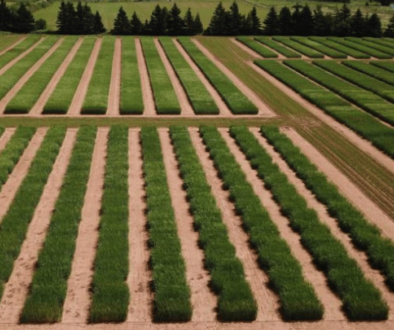CMBTC publishes 2023-24 Recommended Malting Barley Varieties List
WINNIPEG, November 17, 2022 – For immediate release
The Canadian Malting Barley Technical Centre (CMBTC) has published the list of recommended malting barley varieties for the 2023-24 marketing year. Released annually, this list indicates to producers the varieties that are in demand in the marketplace and those that have the greatest potential for contracting, selection and movement.
“At the top of the list this year are two of Canada’s newer varieties, AAC Connect and CDC Fraser,” says Peter Watts, Managing Director of the CMBTC. “These varieties are now largely accepted by domestic and international maltsters as well as brewers. They have also demonstrated themselves to be high performers in the field for Canadian farmers.”
Canada is one of the world’s leading exporters of malting barley and processed malt, recognized for its high-quality varieties and consistent performance in processing.
“The global brewing industry has always seen malt made from Canadian barley varieties as some of the best in the world,” adds Lorelle Selinger, Boortmalt’s managing director for North America and CMBTC board chair. “As you can see from this year’s recommended list, our international reputation remains in good hands thanks to the next generation of varieties developed by Canada’s world class barley breeding programs.”
In large part due to research advancements, newer varieties with improved agronomics and disease resistance are helping to keep malting barley competitive with other crops in Canada. While lodging in barley is a major challenge for farmers, new varieties tend to be shorter and have significantly improved straw strength while still easy to thresh and combine.
“Along with our excellent malting and brewing qualities, a key aspect of Canada’s premium value proposition in the market is our strict adherence to delivering varietal purity to buyers,” adds Watts. “Meeting that minimum 95 per cent purity requirement threshold is critical as maltsters process batches consisting of only single barley varieties to ensure consistent and high-quality malt.”
To maintain varietal purity, there are several practical steps that producers can take avoid any cross- contamination or varietal drift. These include careful storage, strict transportation protocols and seed tests for farm saved seed. When purchasing certified seed, producers should also employ due diligence and ask for a certification certificate or inquire further regarding the steps taken to avoid any varietal imperfections.
“With growing market acceptance of our new varieties with their improved agronomics, I would encourage producers who plan to grow barley in 2023 to consider a new malt variety if they have not already,” says Watts.
All varieties on the list are registered with the Canadian Food Inspection Agency and are designated by the Canadian Grain Commission as malting varieties.
View the CMBTC 2023-24 Recommended Malting Barley Varieties list
For more information:
Peter Watts, Managing Director, CMBTC
Phone: 204-983-1981 Email: pwatts@cmbtc.com
About the CMBTC – Founded in 2000, the CMBTC is a national, independent, non-profit organization with funding provided by members of the malting barley, malt and brewing industries, producers as well as provincial and federal governments. The CMBTC conducts applied malting and brewing research, providing technical support to members and customers. The CMBTC facilities include a 75 kilogram pilot malt plant and 3 hectolitre pilot brewery. The CMBTC also operates the Malt Academy education program providing instruction in malting and brewing.




